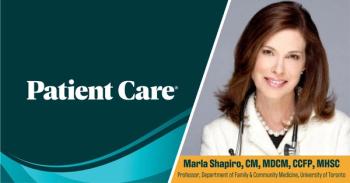
Update on Chronic Constipation
There are numerous treatment options, including a variety of over-the-counter agents to help patients with constipation. Here, a review of the more popular choices.
Chronic constipation is not just about evacuations, according to William Chey, MD, Professor of Gastroenterology at University of Michigan Health System.
In his presentation at the recent American College of Gastroenterology conference in San Diego, Dr Chey noted that it is important to consider the multi-symptom nature of chronic constipation as noted in the Rome III criteria. Diagnostically, there seems to be an overlap between irritable bowel syndrome–constipation and chronic constipation. Further, said Chey, all constipation problems can be broken into 3 types: normal transit constipation, defecatory dysfunction, and slow transit dysfunction.
There are many treatment options, including numerous over-the-counter (OTC) agents available to help patients with constipation. However, Chey added, stool softeners do not work. Chey reviewed some of the more popular treatment options.
Osmotic laxatives: This class of medications includes polyethylene glycol and is available OTC. Randomized controlled trials have found this class of medications to be efficacious. Usually well tolerated, side effects can include bloating and cramping.
Stimulant laxatives: There are no real data on this class of medications, but there are 2 recent trials with an agent from Europe that has shown efficacy in increasing stool frequency.
Lubiprostone: This prosecretory agent is still in clinical trials, Chey said, but thus far there are some good results. Chey noted doses of 25 µg bid taken with food increased the number of spontaneous bowel movements, while 8 µg has been useful in irritable bowel syndrome–constipation.
Linaclotide: Also in the prosecretory class, linaclotide is a 5-HT4 agonist. It has been shown to be effective in increasing stool response at a dose of 2 mg. However, adverse events can be a problem; in one study, 25% to 30% of patients experienced headaches, 12% to 24% of patients had nausea, and 12% to 19% of patients had diarrhea.
Bile acid modulators: This is an emerging therapy that has been found to elicit statistically significant increases in stool frequency. Patients reported such adverse effects as abdominal pain and diarrhea; these effects appeared to be dose-dependent.
Probiotics: Chey said further studies are needed before efficacy can be claimed.
Biofeedback: Chey believes this modality holds some promise. For instance, in a study of patients with dyssynergic defecation, 75% of patients found benefit with biofeedback compared with 30% of patients who received standard therapy.
Constipation should not be considered solely a GI problem, in that it can include non-GI problems as well. Perhaps Chey put it best when he reminded attendees not just to think outside the box-but also to think outside the abdomen.
Resources:
.
.
Newsletter
Enhance your clinical practice with the Patient Care newsletter, offering the latest evidence-based guidelines, diagnostic insights, and treatment strategies for primary care physicians.































































































































